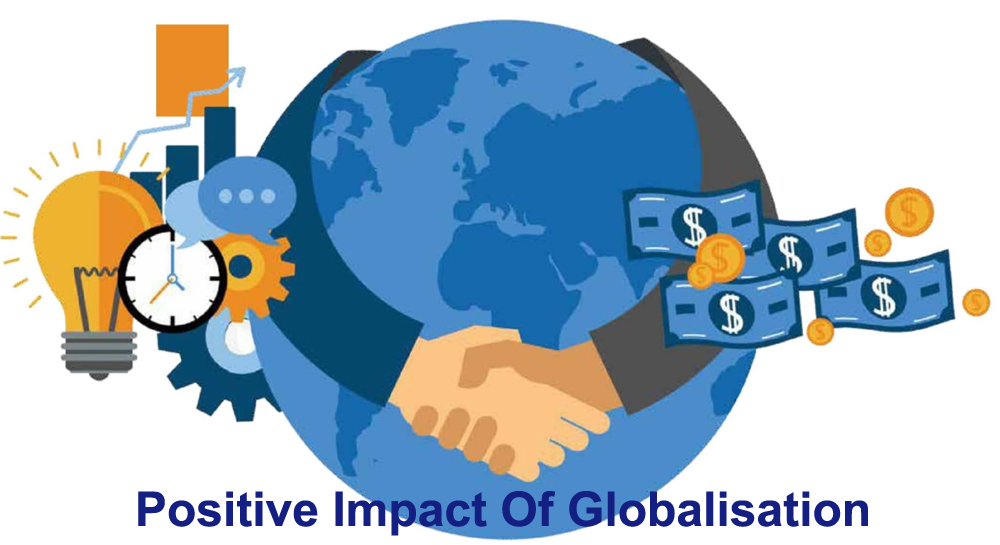Benefits of Globalization
Globalization refers to the increasing interconnectedness and interdependence of countries through the exchange of goods, services, information, and ideas. It has transformed the way businesses operate, economies grow, and societies interact. In this article, we will explore the numerous benefits of globalization and how it has positively impacted various aspects of our lives.
Enhanced Economic Growth
One of the key advantages of globalization is the significant boost it provides to economic growth. By opening up markets and promoting international trade, globalization allows businesses to expand their customer base and reach new markets. This leads to increased production, job creation, and overall economic prosperity.
Increased Access to Goods and Services
Globalization has made it possible for individuals to access a wide variety of goods and services from all around the world. Through international trade, consumers can benefit from a diverse range of products that may not be available locally. This enhances consumer choice, promotes competition, and drives innovation.
Cultural Exchange and Diversity
As people from different cultures and backgrounds interact through globalization, there is an increased exchange of ideas, knowledge, and cultural practices. This fosters cultural diversity and promotes a deeper understanding and appreciation of different traditions, customs, and beliefs. It also encourages the preservation and revitalization of indigenous cultures.
Technological Advancements
Globalization has played a crucial role in driving technological advancements across various industries. The exchange of information and ideas between countries has led to the rapid dissemination of knowledge and expertise. This has facilitated innovation, improved productivity, and accelerated progress in fields such as information technology, healthcare, and communication.
Improved Standard of Living
Through globalization, countries can access resources, technologies, and expertise that may not be available domestically. This allows for the development and implementation of more efficient production methods, better infrastructure, and improved healthcare systems. As a result, the standard of living for many people around the world has significantly improved.
Environmental Benefits
Contrary to popular belief, globalization can also have positive impacts on the environment. Through international cooperation and agreements, countries can work together to address global environmental challenges such as climate change, deforestation, and pollution. Globalization promotes the sharing of best practices, encourages sustainable development, and fosters environmental stewardship.

In conclusion, globalization brings forth a multitude of benefits that contribute to the progress and well-being of societies worldwide. From economic growth and increased access to goods and services to cultural exchange and technological advancements, the advantages of globalization are vast. It is important to recognize and embrace these benefits while also addressing the challenges that may arise. By doing so, we can create a more interconnected and prosperous global community.
Frequently Asked Questions about the Benefits of Globalization
1. What is globalization?
Globalization refers to the increasing interconnectedness and interdependence of countries through the exchange of goods, services, information, and ideas.
2. How does globalization benefit the economy?
Globalization promotes economic growth by expanding markets, increasing competition, and attracting foreign investments, leading to higher productivity, job creation, and improved living standards.
3. Does globalization help reduce poverty?
Yes, globalization has the potential to reduce poverty by providing access to new markets, technologies, and investment opportunities, which can lead to income generation and improved access to education and healthcare.
4. Are there any environmental benefits of globalization?
While globalization can contribute to environmental challenges, it also offers opportunities for global cooperation, knowledge sharing, and the adoption of sustainable practices to address issues like climate change and pollution.
5. Does globalization promote cultural exchange?
Yes, globalization encourages cultural exchange by facilitating the spread of ideas, languages, arts, and traditions across borders, fostering diversity, understanding, and appreciation of different cultures.
6. How does globalization impact innovation?
Globalization stimulates innovation by promoting the exchange of knowledge, technology, and expertise between countries, leading to the development of new ideas, products, and services.
7. Can globalization help improve healthcare?
Yes, globalization can improve healthcare by enabling the sharing of medical research, best practices, and resources, facilitating access to advanced treatments, and supporting global efforts to combat diseases.
8. Does globalization benefit consumers?
Absolutely, globalization benefits consumers by providing access to a wider variety of goods and services at competitive prices, promoting consumer choice, and driving product quality improvements.
9. How does globalization impact employment?
Globalization can lead to both job creation and job displacement. While some industries may face challenges due to increased competition, globalization also creates new employment opportunities in sectors that benefit from international trade and investment.
10. Are there any social benefits of globalization?
Yes, globalization can bring social benefits such as improved access to education, healthcare, and technology, fostering cultural understanding, and promoting social progress through the sharing of ideas and values.




